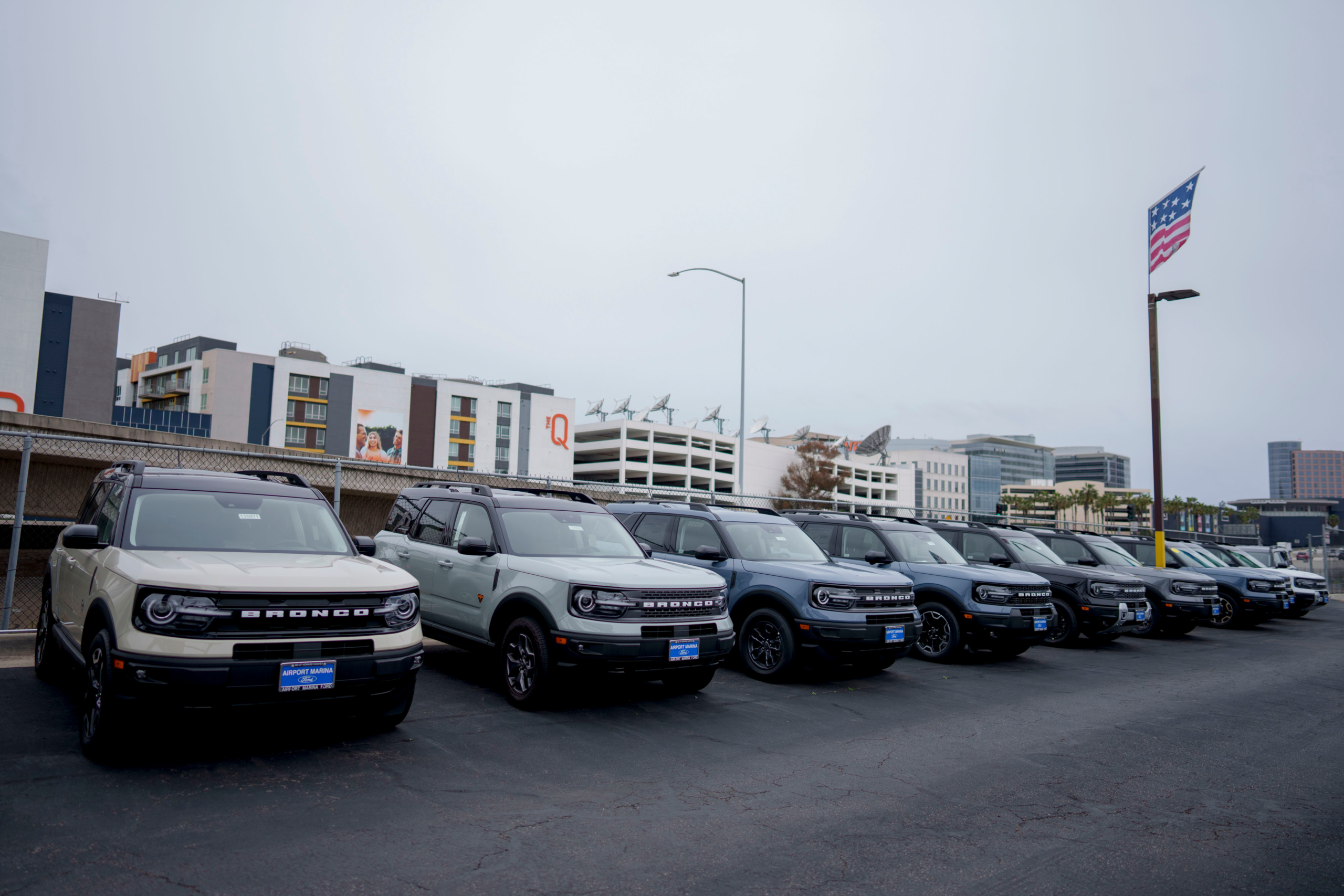A CAR buyer has been hit with a hefty $3,800 bill from a dealership after purchasing a new vehicle and trading in their old one.
A TikToker named Allyson shared her frustrating experience after buying a Ford Bronco – as her experience quickly went from a dream to an ordeal after the outlet mishandled her trade-in and loan.
Shared on social media under her handle @Agoodz, Allyson's video garnered over 26,000 views as she detailed how the dealership claimed her trade-in vehicle was "upside-down," meaning the remaining loan balance was higher than the car's actual value.
“Everything was fine. I got the DRS [Dealer Report of Sale] in the mail, started the registration process,” she said.
But a month after the purchase, she said: “I got a text message last week from a finance guy at the dealership, and he says I owe them $3,800 because my car was actually upside-down.
“I said, ‘No, it wasn’t. Here’s Kelly Blue Book on my value. Here’s what you guys gave me, which is much lower.’”
Toyota Financial later contacted her about missed payments on her traded-in vehicle, which should have been paid off by the dealership.
This raised concerns about her credit score and ongoing liability for the old car loan.
She told them: “I sold that car a month ago, and it was supposed to be paid off.”
But when she contacted her new lender about her Bronco, she discovered no loan had been processed for her new vehicle.
Additionally, the dealership's check to pay off her trade-in loan was reportedly missing and the finance manager she had been dealing with was fired.
According to Motor1, the "forgot to pay off your trade-in" scam is well-documented – and often used by unethical car dealerships.
Carlton Wolf, an automotive fraud specialist, explains that this scam involves dealers deliberately failing to pay off the loan balance of the trade-in vehicle or using clerical errors and delays to extract additional money from the customer.
This can result in them then being liable for payments on both the old and new car loans.
The Georgia Attorney General’s Consumer Protection Division warns about these practices and says there are risks involved – even when dealerships agree in writing to pay off trade-in loans.
There is no guarantee they will fulfill their promise and customers may end up responsible for both loans – which can lead to credit damage, financial strain and even repossession of the traded-in vehicle.
Experts, including consumer protection attorney Nareissa Smith, say that car loans are contracts between the borrower and the lender.
This means the customer remains legally responsible for the original loan until it is fully repaid, regardless of dealership promises.
Missed payments caused by dealer failures can lead to severe consequences, such as credit score drops and negative reports to credit bureaus.
Consumer champions warn buyers to check for signs of such scams – including dealerships requesting more money after contracts are signed, miscalculating trade-in values, failing to send payoff checks to previous lenders and missing loan documentation.
For buyers caught in similar situations, consulting a consumer law attorney is often advised to navigate the complexities of dealership fraud.
Allyson later shared an update on TikTok, revealing that the dealership admitted fault and resolved the issue.
The unpaid loans and confusion surrounding her trade-in vehicle were cleared up and she is now saving money on her car payments.
Being "upside-down" on a car loan means you owe more on the loan than the car’s current market value – which is also known as negative equity.
This often happens due to rapid depreciation, low or no down payments, long loan terms, high interest rates or rolling over negative equity from a previous vehicle.
Essentially, the car loses value faster than you’re paying off the loan.
For you, the buyer, the implications can be costly – as selling or trading in the vehicle means you’ll need to cover the difference out-of-pocket.
Worse still, if the car is totaled, insurance typically won’t cover the full loan amount unless you have gap insurance.
Refinancing an upside-down loan can also be difficult, leaving you stuck in a financially disadvantageous position.
To avoid or address being upside-down, make larger down payments, choose shorter loan terms, avoid rolling over negative equity, and consider gap insurance for protection. Paying extra toward the principal and choosing cars with slower depreciation can help build equity faster and reduce financial risks.
© NEWS ENTERPRISES, INC. ALL RIGHTS RESERVED | TERMS OF USE | PRIVACY | YOUR AD CHOICES | SITEMAP












